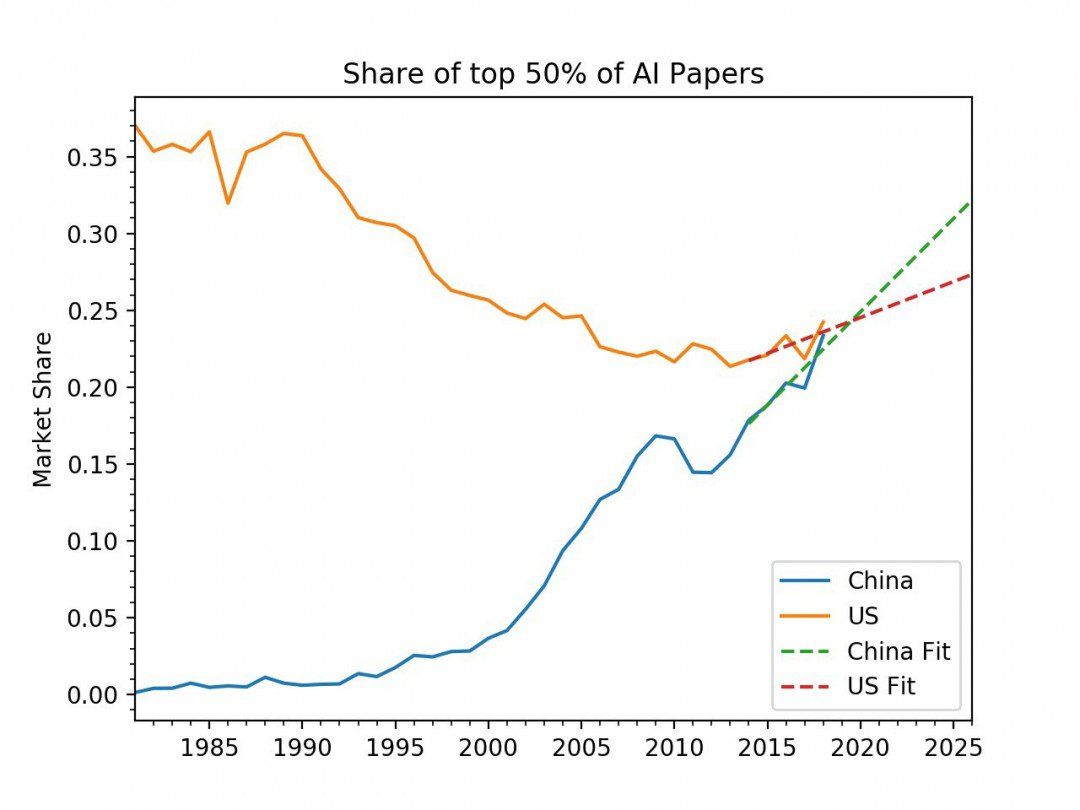Discussing cutting-edge technology is almost impossible without thinking about artificial intelligence, a technology that is becoming increasingly important in our daily lives. The race between the various world powers for supremacy over this technology has been going on for a long time, and China and the United States are the ones trying to take first place. However, we have recently learned that China has taken a small lead over the United States in this race.
Indeed, the Chinese Government has been very much involved in technological development by taking important initiatives to dominate this sector, which has contributed to the progress we are seeing in this country today. Previous studies have even shown that China already produces the largest number of research documents mentioning terms related to artificial intelligence. But since technology is a very broad field, it is quite difficult to evaluate the results of this research qualitatively, but one organization has offered to face this challenge.
It is the American Institute of Artificial Intelligence Allen (Ai2), a Seattle-based non-profit organization founded by Microsoft co-founder Paul Allen and focused on basic research in artificial intelligence. This institute previously developed a tool called Semantic Scholar that uses artificial intelligence to facilitate the search and analysis of scientific research documents published online.
With this tool, KI2 researchers have reviewed all AI research articles from China. It may be important to note that these articles have been cited in several other works. They have therefore concluded that China will be ahead of the US in the most cited research articles in the world not only this year but also in the years to come (2020 and even 2025).
Kai-Fu Lee, a leading Chinese investor in AI, said it was possible that the study had exaggerated things a little. He acknowledges that there is a momentum, but thinks that the time horizon is further away.
Findings like this largely confirm that China is well on the way to achieving its goal of acquiring a level of expertise equivalent to that of the United States for artificial intelligence by 2020. As the Trump administration tries to reduce US scientific funding, the technological gap between the two countries could widen faster. It remains to be seen whether the United States will react before they fall behind in a race that could affect almost every aspect of life for years to come.
Source : MIT Technology Review
